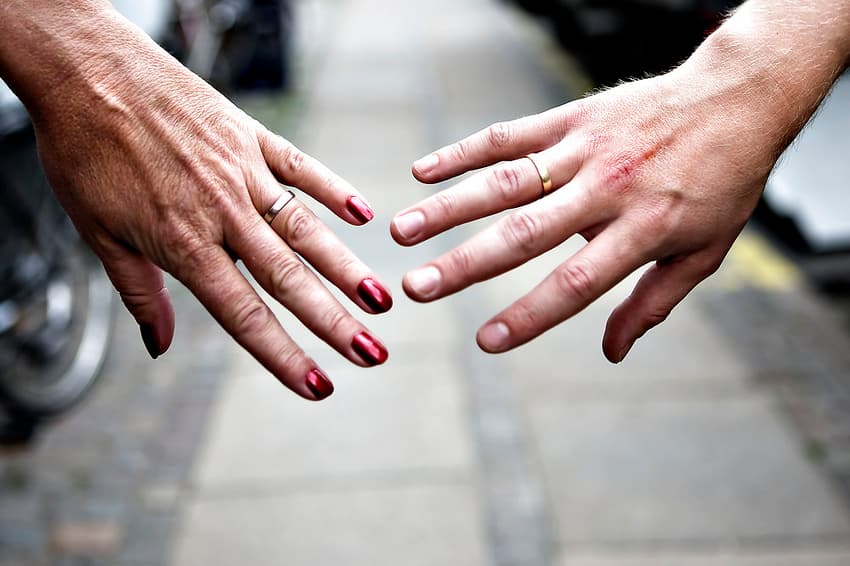New Danish divorce rule criticized for dragging out separations

A new divorce law introduced in Denmark earlier this year has not had a positive impact on separation processes, according to a charity for mothers.
From April 1st this year, a new rule intended to protect children from conflict during divorces was introduced.
The rule allows a child to have two registered addresses – on with each parent – for the first three months after a divorce.
But the provision is having the opposite effect and drawing out conflicts, according to family support charity Mødrehjælpen, newspaper Politiken reported last week.
“What we have seen in relation to this rule is that, unfortunately, it seems to extend and increase the conflict for children,” the organisation’s deputy director Trine Schaldemose told Ritzau.
One intention of the new rule for addresses is to give parents a buffer so that key decisions are not made while in the aftermath of emotionally draining break-ups, according to the news agency.
“Before the law came into effect, we were concerned that this three-month address-sharing period would delay an outcome more than it provides time and space for reflection,” Schaldemose said.
“We can now see that this appears to be the case,” she added.
Considerations related to registration of addresses for newly-single parents include whether to begin looking for a new home before a decision is made over where their children will live; and how future custody decisions can be affected by their current address.
Custody decisions often favour the parent who shares a registered address with children. As a result, parents are often reluctant to leave shared homes.
Danish law requires all citizens to have a permanent address registered centrally on what is known as the Central Persons’ Registry (Det Centrale Personregister, CPR).
A spokesperson for family lawyers echoed the view that the new rule was complicating conflicts related to divorce and separation.
“We are constantly meeting families who are suffering because of this rule. Not least the children, who are forced to live in the centre of the conflict for an extra three months because parents dare not move,” Anne Broksø, head of the Danske Familieadvokater association, told Politiken.
Camilla Fabricius, spokesperson on social issues with the governing Social Democrats, said she was prepared to listen to parents on the matter.
“This is a case of completely new rules which must be evaluated at some point. When that happens, we will involve Mødrehjælpen to see if anything needs to be adjusted,” Fabricius said.
READ ALSO: Mandatory 'divorce course' for parents splitting up in Denmark
Comments
See Also
From April 1st this year, a new rule intended to protect children from conflict during divorces was introduced.
The rule allows a child to have two registered addresses – on with each parent – for the first three months after a divorce.
But the provision is having the opposite effect and drawing out conflicts, according to family support charity Mødrehjælpen, newspaper Politiken reported last week.
“What we have seen in relation to this rule is that, unfortunately, it seems to extend and increase the conflict for children,” the organisation’s deputy director Trine Schaldemose told Ritzau.
One intention of the new rule for addresses is to give parents a buffer so that key decisions are not made while in the aftermath of emotionally draining break-ups, according to the news agency.
“Before the law came into effect, we were concerned that this three-month address-sharing period would delay an outcome more than it provides time and space for reflection,” Schaldemose said.
“We can now see that this appears to be the case,” she added.
Considerations related to registration of addresses for newly-single parents include whether to begin looking for a new home before a decision is made over where their children will live; and how future custody decisions can be affected by their current address.
Custody decisions often favour the parent who shares a registered address with children. As a result, parents are often reluctant to leave shared homes.
Danish law requires all citizens to have a permanent address registered centrally on what is known as the Central Persons’ Registry (Det Centrale Personregister, CPR).
A spokesperson for family lawyers echoed the view that the new rule was complicating conflicts related to divorce and separation.
“We are constantly meeting families who are suffering because of this rule. Not least the children, who are forced to live in the centre of the conflict for an extra three months because parents dare not move,” Anne Broksø, head of the Danske Familieadvokater association, told Politiken.
Camilla Fabricius, spokesperson on social issues with the governing Social Democrats, said she was prepared to listen to parents on the matter.
“This is a case of completely new rules which must be evaluated at some point. When that happens, we will involve Mødrehjælpen to see if anything needs to be adjusted,” Fabricius said.
READ ALSO: Mandatory 'divorce course' for parents splitting up in Denmark
Join the conversation in our comments section below. Share your own views and experience and if you have a question or suggestion for our journalists then email us at [email protected].
Please keep comments civil, constructive and on topic – and make sure to read our terms of use before getting involved.
Please log in here to leave a comment.